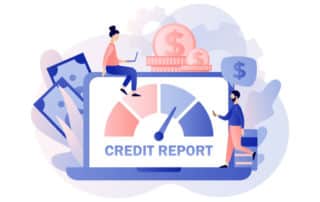
What Bankruptcy Can and Can’t Do
If you have debts that are no longer manageable, filing a bankruptcy petition is an effective solution. Bankruptcy can stop almost all collection efforts, such as calls from creditors, wage garnishment actions, and most lawsuits. It also discharges many unsecured debts, including credit cards, medical bills, guarantees on personal loans, and more.
However, bankruptcy does not prevent certain creditors from continuing collections efforts, and it will not discharge all debts. For instance, you will remain obligated to make payments on your student loans (except if you can meet the stringent hardship standard) and priority debts such as child support payments, alimony payments, and certain tax debts.
What Can Bankruptcy Do?
Filing for bankruptcy allows individuals grappling with debt to discharge certain obligations to receive a fresh start. The two (2) most used types of bankruptcies filed by individuals are 1) Chapter 7 bankruptcy; and 2) Chapter 13 bankruptcy. These chapters offer different benefits and treat your debts and your property differently. Your Miami Bankruptcy attorney will help you choose the right chapter for you. It is an analysis that depends on your disposable income, the property you own, and your specific goals. Here is a partial list of some things bankruptcy can do.
Stop Collection Activities and Creditor Harassment
Upon filing for bankruptcy relief (file your bankruptcy petition), the automatic stay is activated instantly by the Bankruptcy Code. The automatic stay stops creditor phone calls, active wage garnishments, and most lawsuits, with some exceptions. For example, creditors may continue to collect efforts for child support payments, and the automatic stay will not stop criminal cases.
Stop Foreclosure Actions, Repossession Efforts, or Evictions
The automatic stay halts the following actions from continuing as long as they are not concluded.
Evictions
The bankruptcy filing will halt a pending eviction. But the automatic stay may not be permanent. If there is an eviction judgment against you before filing bankruptcy, may request the automatic stay be lifted, and in some cases, the automatic stay may not be applicable.
Foreclosures and repossessions
While the bankruptcy’s automatic stay will halt a foreclosure action or repossession efforts, filing for a Chapter 7 will not help you retain your property. Unless you bring these accounts up to date, you will lose your property once your creditors file a motion to lift the automatic stay or the automatic stay terminates once the bankruptcy case is concluded. If saving your property is your primary goal, then Chapter 13 will allow you to catch up on missed payments so that you may keep these assets.
Discharge Credit Cards and other Unsecured Debts
A Bankruptcy filing discharges (wipes out) unsecured credit card debts, medical bills, outstanding utility bills, personal unsecured loans, and gym contracts. Credit cards are considered unsecured if default on the credit card bill, and you are not obligated to return the property you purchased with them. In contrast, secured credit cards such as store cards from retailers such as Kay Jewelers and Best Buy have UCC 1 liens, and you will be required to either pay these creditors or return the items.
How long does it take to get a discharge?
How quickly the bankruptcy court will enter an order discharging your debts depends on which type of bankruptcy you file:
Chapter 7 bankruptcy typically takes three (3) to four (4) months to conclude.
Chapter 13 bankruptcy will require you to repay a portion of your general unsecured debts within a three (3) to five (5) year plan (usually only pennies on the dollar). The remaining balances on those debts after your Chapter 13 plan has been completed will be discharged.
Discharging Secured Debts
If you can not continue to afford the secured debts on your mortgage, car payments, or other personal property, you can discharge these debts in bankruptcy. To wipe out these secured debts, you will have to surrender the collateral securing the loan.
What Can be Done in a Chapter 13 Bankruptcy?
Chapter 7 and Chapter 13 are different in how they handle debts. Chapter 7 offers a streamlined liquidation process and will not help you retain your property if you are in arrears with your obligations. However, if you earn income or receive family support that can pay something to creditors, then you eligible to cure these arrearages by filing a Chapter 13 bankruptcy. Here is a partial list of what can be done in a Chapter 13 Bankruptcy:
Stop mortgage foreclosure – Once you file your Chapter 13 bankruptcy, the automatic stay will stop any foreclosure actions. While the bankruptcy case is pending, you will have time to propose a repayment plan allowing you to catch up with your past due payments. The repayment plans typically over time the course of a three (3) to five (5) year plan. You will also be obligated to remain current with your regular ongoing monthly payments.
Chapter 13 permits you to keep Nonexempt Property – anyone who files for bankruptcy is permitted to exempt certain items from the reach of their creditors. A debtor that files for bankruptcy in either Miami, Miami Beach, Fort Lauderdale, West Palm Beach, and throughout the state of Florida are allowed to use the Florida State exemptions to protect specific property from their creditors. While a Chapter 7 debtor gives up their nonexempt property, a Chapter 13 filer does not. This doesn’t mean that a debtor gets to keep their assets for free; they will need to pay the value of their nonexempt property into the Chapter 13 plan, which will be disbursed by the Chapter 13 Trustee pro-rata to the creditors that have filed allowed proofs of claims.
“Cram down” secured debts – Chapter 13 allows a debtor to reclassify secured debt to unsecured debt when the amount owed on the secured debt is more than the value of the property that it secures. Chapter 13 allows you to value the property to reduce the secured debt to the property’s replacement value and the remainder of the debt becomes unsecured. The only caveat is that you will have to pay off the full amount of debt in full through your plan. For example, if you owe $15,000 on a car loan and at the time of filing your bankruptcy, the car is worth only $10,000, you can propose a plan that pays the creditor $10,000 and discharge the remaining $5,000. However, you can’t cram down a car debt if you purchased the car 910 days before filing for bankruptcy. Also, you won’t be able to use cramdown the first mortgage of your primary residence.
What Bankruptcy Can’t Do
Bankruptcy is not able to resolve all debt problems. Here is a list of what bankruptcy can not do:
Prevent creditors from foreclosing or repossessing property, which you can not afford
While the bankruptcy discharge can eliminate unsecured debts, it doesn’t eliminate liens on your property. A lien allows creditors to repossess or foreclose your property, then sell it at auction. The proceeds from the sale are then applied to your loan balance. Liens are attached to the property until the underlining debt is satisfied. When you have a secured debt – the creditor has a lien on your property; bankruptcy can eliminate your in personam obligation (meaning you are not personally liable for the debt). However, there is still an in rem obligation (there is still a lien on the property). This means your creditors can recover the collateral to satisfy the underlining debt. Here is an example. If you file a Chapter 7 bankruptcy, you can discharge your in personam liability on your home mortgage; however, there is still an in rem liability. The lender’s lien will remain on the home. As long as there is an in rem liability and the mortgage is not current, the lender can foreclose on the property once Chapter 7 is completed or the creditor requests the bankruptcy court lift the automatic stay.
Bankruptcy Can’t Eliminate child support and alimony obligations.
According to 11 § USC 523(a)(5), Child support and alimony obligations are nondischargeable; this means that you will continue to owe these debts. And if you file a Chapter 13 bankruptcy, 11 USC § 1322(a)(4) requires that you pay the arrearages on these debts in full, or the bankruptcy court will not confirm your plan. Under 11 USC 507(a)(1)(A), these Debts are also given priority status.
Bankruptcy Can’t Eliminate student loans (with minimal exemptions)
In order to discharge student loans in bankruptcy, there must be a showing of “undue hardship,” which is a very difficult standard. This means you must prove that you can not afford to pay your student loans and that there is very little chance that you can do so in the future.
Bankruptcy Can’t Eliminate most tax debts –
11 § USC 523(a) lists specific types of tax liabilities that cannot be discharged. Each situation is different, and you should seek a bankruptcy attorney’s advice to determine if your tax liabilities can be discharged.
Bankruptcy Can’t Eliminate Debts that are nondischargeable debts.
This is a list of debts aren’t dischargeable under the bankruptcy code:
- 11 § USC 523(a)(3) – debts that are not listed in your bankruptcy papers;
- 11 § USC 523(a)(10) – debts for personal injury or death caused by the operation of a motor vehicle while intoxicated driving; and
- 11 § USC 523(a)(7) – fines and penalties imposed.
Contact Miceli Law, P.A. for a Free Bankruptcy Consultation
Bankruptcy is a tool that is available to individuals who need a fresh start. A Miami bankruptcy lawyer is ready to fight on your behalf so that you do not have to suffer from the stress caused by excessive debts.
Request your Free Consultation with Miceli Law, P.A. now by calling (305) 515-5928. You are also welcome to contact us via our contact form.
Latest from our Blog
Consultations Available At:
Consultations Available At:






